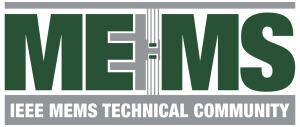Smitha Rao received her MS and Ph.D. degrees from The University of Texas at Arlington in Electrical Engineering in 2004 and 2009 respectively. She pursued her research interest as a principal scientist in a start-up company from 2010-2012. In 2012, she returned to academia as a faculty associate-research managing a laboratory, extending her research, and gaining teaching experience. She is currently an assistant professor in the Department of Biomedical Engineering at Michigan Technological University, Houghton, MI. Her research focuses on inter-disciplinary areas including MEMS, microfluidics, tissue engineering, nanofibers, and nanoparticles with application in cancer studies, scaffolds, sensors, and implantable devices. Her teaching includes biomedical instrumentation and micro-and nanotechnology for biomedical applications. She is a senior member of IEEE.
Organizer Type: Track Chair
Dr. Cheng received his BS and PhD degrees in Electrical Engineering from National Tsing-Hua University, Taiwan in 1995, 2003 respectively. He joined the University of Alabama (UA) as a full professor in 2019. Prior to that, he was a faculty member at Wayne State University and the University of Texas Health Science at Houston. Dr. Cheng’s research interests include sensor design, internet-of-things (IoT), biomedical devices, micro electromechanical systems (MEMS), and 2D materials. Cheng received the NSF CAREER Award, ONR Summer Research Faculty Award and Presidential Research Enhancement Award. At UA, he and his students are applying state-of-the-art technologies to emerging challenges in our society, including water population and wearable biomedical sensing. His current research is supported by National Science Foundation, and Great Lake Protection Fund.
Chirasree RoyChaudhuri is an Associate Professor in the Department of Electronics and Telecommunication Engineering of Indian institute of Engineering Science and Technology Shibpur. She has been engaged in interdisciplinary research in the area of electrical biosensors,chemical sensors and related signal processing with the aim to developpoint of care devices. She is a recipient of Young Engineer Award from
Indian National Academy of Engineering(INAE), Young Scientist Award from National Academy of Science, India(NASI) and Institute of Smart Materials Structures and Systems and Women Excellence Award from Department of Science and Technology, Government of India. She is a member of Indian National Young Academy of Science(INYAS) and an Associate Editor of the IEEE Sensors journal.
D. M. G. Preethichandra has received his BSc.Eng. degree in Electrical and Electronics Engineering from the University of Peradeniya, Sri Lanka, M.Eng. in Telecommunications and PhD degree in Sensor Design from Saga University, Japan. He has received his Masters in Environmental and Business management from The University of Newcastle, Australia.
He worked as an Assistant Professor in Japan and currently works as an Associate Professor and the head of the discipline of Mechatronics Engineering at Central Queensland University, Australia. He has been working in academia for more than 25 years and his research interests include nano-biosensor development for environmental and biomedical measurements, sensor networking and robotics.
Mohsen Asadnia is an Associate Professor and group leader in Mechatronics-biomechanics and at Macquarie University, Australia. He received his PhD degree in Mechanical Engineering from Nanyang Technological University, Singapore. Prior to joining Macquarie University, Mohsen had several teaching and research roles with the University of Western Australia, Massachusetts Institute of Technology and Nanyang Technological University. His work has resulted in over 150 peer-reviewed journal articles published in prestigious journals, including Nature Communication, Advanced Materials, Nano and Micro Letters. His research interest lies in Environmental/ Biomedical Sensors, Artificial Hearing Implant Devices, Microfluidics, Artificial Intelligence, and Bio-Inspired Sensing.
Elena is a Professor of Pervasive Computing. Her work concerns the inception of sensor based systems to resolve applications where intelligent processing of data at source (sensing point) is critical in order to enable decision making. She is a Board of Directors Member at the UK’s Women’s Engineering Society and serves on the External Advisory Board at the Sensors Centre for Doctoral Training Cambridge University. Elena is the National Co-Director for the UK’s Doctoral Training Alliance and an Honorary/Adjunct Professor at Deakin and Macquarie Universities, Australia. Sponsored by the British Council and UK Research Councils, Elena delivered global capacity building programmes for women researchers to further enable them to access STEM positions. Her work recognises the value of women having access to resources and training that support ambition, encourage responsible innovation, and build collaborative networks. She serves in the humanitarian engineering energy sector, developing ways to engage women with renewable technologies in the Global South, as pathways to empowerment and employment.
Dr. Dong-Weon Lee received his PhD degree in Mechatronics from Tohoku University in 2001 and continued with his postdoctoral research at IBM Zurich Research Laboratory during the years of 2001-2004. Subsequently, Dr. Lee joined the School of Mechanical Engineering, Chonnam National University as an Assistant Professor in 2004 and was successfully promoted to Professor with Tenure effective from 2011. Dr. Lee’s research interests on MEMS/NENS, especially to biomedical sensor and system, self-powered wireless sensor and system for personal healthcare applications. He is a productive researcher with more than 200 SCI papers, as well as a multi-award winner for his acclaimed research contributions. He also serves as a director of Advanced Medical Device Research Center for Cardiovascular Disease since 2020. This research center aims to develop various biomedical platforms with the goal of cardiovascular patient-oriented precision medicine.
Hung Cao received his B.Sc. in Electronics and Telecoms from Hanoi University of Science and Technology, Vietnam in 2003. He then served as a lecturer at Vietnam Maritime University from 2003 to 2005. He obtained his M.Sc. and Ph.D. in Electrical Engineering from UT Arlington in 2007 and 2012, respectively. Dr. Cao then received training in bioengineering and medicine at University of Southern California (2012-2013) and University of California, Los Angeles (2013-2014). In 2014-2015, he worked for ETS, Montreal, QC, Canada as a research faculty. From Fall 2015 to Summer 2018, Dr. Cao worked as an Assistant Professor of Electrical and Biomedical Engineering at UW Bothell. Dr. Cao joined the Department of Electrical Engineering and Computer Science, UC Irvine from September 2018. Dr. Cao is a recipient of the prestigious NSF CAREER Award (2017). His research has been funded by his home institutions, NSF, NIH and industry partners.
Dr. Xiaoshan Zhu received his Ph.D. degree in Electrical Engineering from the University of Cincinnati in 2005, and worked as a research scientist on sensor/instrument development in Yellow Springs Instrument, OH in 2005 ~ 2008. Currently, he is an associate professor in the Department of Electrical and Biomedical Engineering at the University of Nevada Reno (UNR). His research interests include nanomaterials with new chemical/physical properties for biosensing/imaging, sensory systems integrating nanomaterials and MEMS technologies for health-care and/or environmental monitoring, and instrumentation for highly sensitive and accurate sensing measurements.
Bernhard Jakoby obtained his Dipl.-Ing. (M.Sc.) in Communication Engineering and his doctoral (Ph.D.) degree in electrical engineering from the Vienna University of Technology (VUT), Austria, in 1991 and 1994, respectively. In 2001 he obtained a venia legendi for Theoretical Electrical Engineering from the VUT. From 1991 to1994 he worked as a Research Assistant at the Institute of General Electrical Engineering and Electronics of the VUT. Subsequently he stayed as an Erwin Schrodinger Fellow at the University of Ghent, Belgium, performing research on the electrodynamics of complex media. From 1996 to 1999 he held the position of a Research Associate and later Assistant Professor at the Delft University of Technology, The Netherlands, working in the field of microacoustic sensors. From 1999 to 2001 he was with the Automotive Electronics Division of the Robert Bosch GmbH, Germany, where he conducted development projects in the field of automotive liquid sensors. In 2001 he joined the newly formed Industrial Sensor Systems group of the VUT as an Associate Professor. In 2005 he was appointed Full Professor of Microelectronics at the Johannes Kepler University Linz, Austria. In 2020 he became a Fellow of the IEEE. He is currently working in the field of liquid sensors and monitoring systems.



















